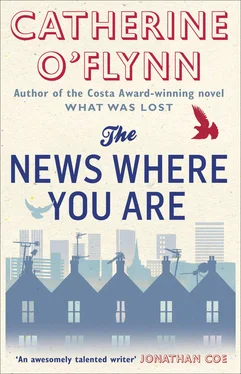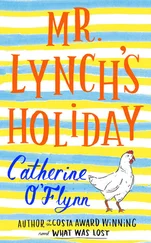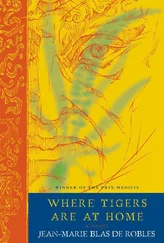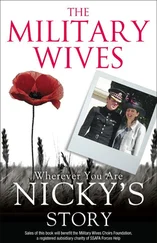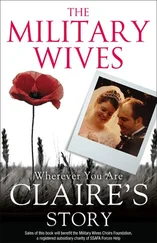Aside from the spatial confusion, his visits to the home followed much the same routine as ever. His mother’s room for a cup of tea and then a game of dominos with Walter in the residents’ lounge. His mother still chose to rarely mention Walter, though occasional references might be made to ‘a friend’ having said something or been somewhere. It was only during the games of dominos that Frank would hear of walks they had taken, or tea shops they had visited and gain any sense of the friendship between them. Where Maureen was circumspect, Walter was open and forthcoming. He frequently told Frank how wonderful he thought his mother was. Frank never knew quite how to react, and sometimes found himself defaulting to a polite, ‘Thank you,’ in the absence of anything better.
‘I’ve never been happier, Frank. Can you believe that? I’m seventy-seven and really I’ve never felt more content and settled. I know your mother feels the same, though of course she doesn’t make a song and dance about it like I do.’
Song and dance were certainly lacking in his mother, but so, Frank had detected, was the sense that she was simply waiting to die.
He sat in her room now with Mo who was looking at the sea view through the window using a magnifying glass she had bought in one of the fossil and souvenir shops in the town.
‘Interesting,’ she said. ‘Very, very interesting.’
‘Mo,’ said Frank, ‘I don’t think it works for things in the distance, only up close.’
‘It works for both. Up close it magnifies, in the distance it blurs.’
‘Oh right — it blurs — that’s good, is it?’
‘Take no notice, Mo,’ said Maureen. ‘I think most things look far better when they’re blurred.’
Mo nodded. ‘I can pretend that I’m looking back in time and there are no people, only dinosaurs.’
‘Well, that might be an improvement. I’d imagine dinosaurs talk a lot less rubbish than plenty of people I know. So what’s the plan for this afternoon?’
‘I’m going fossil hunting with Mom and Dad.’
‘Hunting for fossils?’
‘Yes — this is the Jurassic Coast — there are loads of them.’
Maureen smiled. ‘Well, I know that, dear. I take breakfast with them every day.’
Later they walked across the beach looking for a good picnic spot. Andrea reached the middle of the beach and dropped the bags. ‘Here’s as good a place as any. What do you reckon?’
Mo nodded. Frank shook the rug out and laid it on the pebbles. Andrea started getting foil packages out of the carrier bags. Mo opened her backpack and pulled out her new fossil-hunting kit. It contained a hammer, a chisel, clear plastic bags, protective glasses and a small book on hunting for fossils. She put the big plastic glasses on to read the book.
As they drank tea from the flask, Mo looked up from her book and asked: ‘Do you think that one day in a trillion years someone will find our fossil? They’ll be sitting on a big rock eating a picnic and they’ll look down and there we’ll be — looking out at them?’
Frank pulled a face. ‘That’d put you off your sandwiches.’
‘But could it happen?’
‘I don’t think so. I think one day, a long time in the future, after we die, we’ll probably be buried or cremated and we’ll eventually become dust or soil.’
Mo was unimpressed. ‘Dust? I don’t want to be dust. Being a rock would be much better.’
Frank shook his head. ‘Do you really think? Being trapped in a rock forever sounds horrible to me, like being imprisoned, but if you were dust you could be blown by the wind and go wherever you wanted.’
‘But, Dad, nobody notices dust.’
Frank jabbed the air with his sandwich. ‘Well, maybe they should.’
They finished their sandwiches and then Mo set off with her hammer and chisel to look for fossils. Frank and Andrea watched her as she walked back towards the cliff. She tried to keep her balance on the mass of rounded stones beneath her feet. As she walked away, the contrast in size between her and the wall of rock grew, until she reached the bottom and stood dwarfed at the very foot of the cliff. They saw her remove her parka and lay it on the ground. She sat down on it at the base of the cliff, with her back to them and the sea, and with her magnifying glass clutched in front of her eye examined the surface closely for any signs of past life.
53. Michael, October 2009
It’s dark now — or as dark as it gets in the city. He sees no stars in the sky above him, just an orange glow from the street lights. The last bus left hours ago. At some point he realizes that he’s never leaving the bench. There are worse ways to go. He thinks of Elsie. He thinks of Phil.
Phil told him that he’d saved his life once. He said, ‘All I’m asking is for you to undo that.’ Michael hadn’t realized that’s how it was supposed to work.
He’d agreed to do it because Phil asked him and because he thought he could. He thought his hands could do anything. After Elsie died they had carried on tying his shoelaces in the morning, polishing the furniture in the lounge, cold-bloodedly functioning through it all. Why not hold a gun and pull a trigger? There didn’t seem much difference.
But his hands surprised him. They faltered and refused. The cold metal lay inert in his palm. His busy hands stilled. His fingers limp. They wouldn’t let him do it.
Phil thought that age would rob him of everything. Michael told him it couldn’t. He told him to look in the mirror and he’d see something in his eyes that had never changed and never would. Michael had seen it in Elsie’s eyes, even at the end, still there burning through everything else. Still Elsie.
A smile flickers on Michael’s face. Poor Phil. Always scared. Always running before he needed to. Michael always tried to tell him that running never solved anything.
Elsie was standing under the tree at the side of the park. A breeze moved the shadow of the leaves across her face, revealing and hiding glimpses of her as he walked towards her. For months all he’d had were photos and letters and memories and now he wanted to see all of her. She was looking towards him, her face impossible to see. Eventually he broke into a run, laughing at the corniness of the gesture, the returning soldier, running to embrace his sweetheart. She came out to meet him, walking out of the shadows, into the daylight and he saw she was laughing too, the happiest most beautiful thing he had ever seen.
The park has gone now, buried under the ring road, the bandstand has been replaced by a traffic island and there is no trace left of the trees. Except for their tree. It too has gone, but a bench marks the place where it once stood. It’s a strange place for a bench. He’s walked past it hundreds of times and never seen anyone else on it. He wonders if it’s been waiting for him.
Some people say they feel the presence of the dead. They sense some disturbance in the air and they know their dead husband is standing beside them, their dead cat curled on their lap, their dead wife still battling with the pile of ironing.
He’s never once felt Elsie’s presence since she died. He watched the last breath leave her body and then the world changed. She was gone.
He feels her absence, though, all the time.
It’s there in specific things:
the dip in the bed where she used to lie,
the shape of the crack in the vase that she dropped,
and it’s everywhere:
the air around him,
the colour of night in their bedroom,
the shapes he sees on the insides of his eyelids.
He understands now. Our absence is what remains of us.
The BBC regional news programme Midlands Today is not the model for Heart of England Reports , and neither are the characters in this novel based on anyone working there past or present. I am, however, greatly indebted to the team for their assistance with my general research into regional news and their great patience in answering my dim-witted and at times bizarre questions. Special thanks to Naomi Bishop for acting as guide and to Sue Beardsmore for all her time and expertise.
Читать дальше
